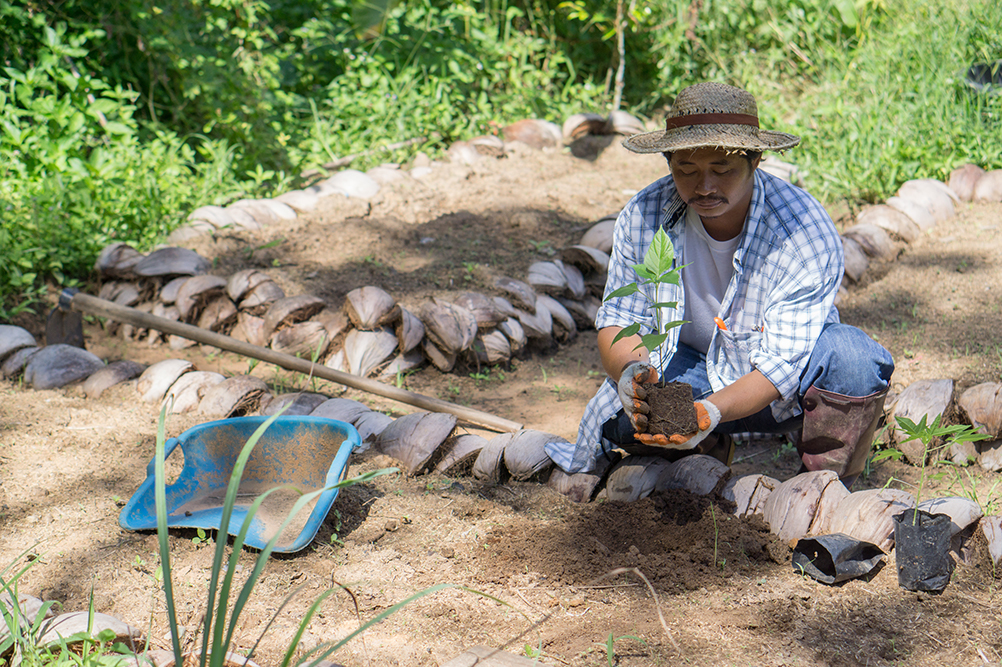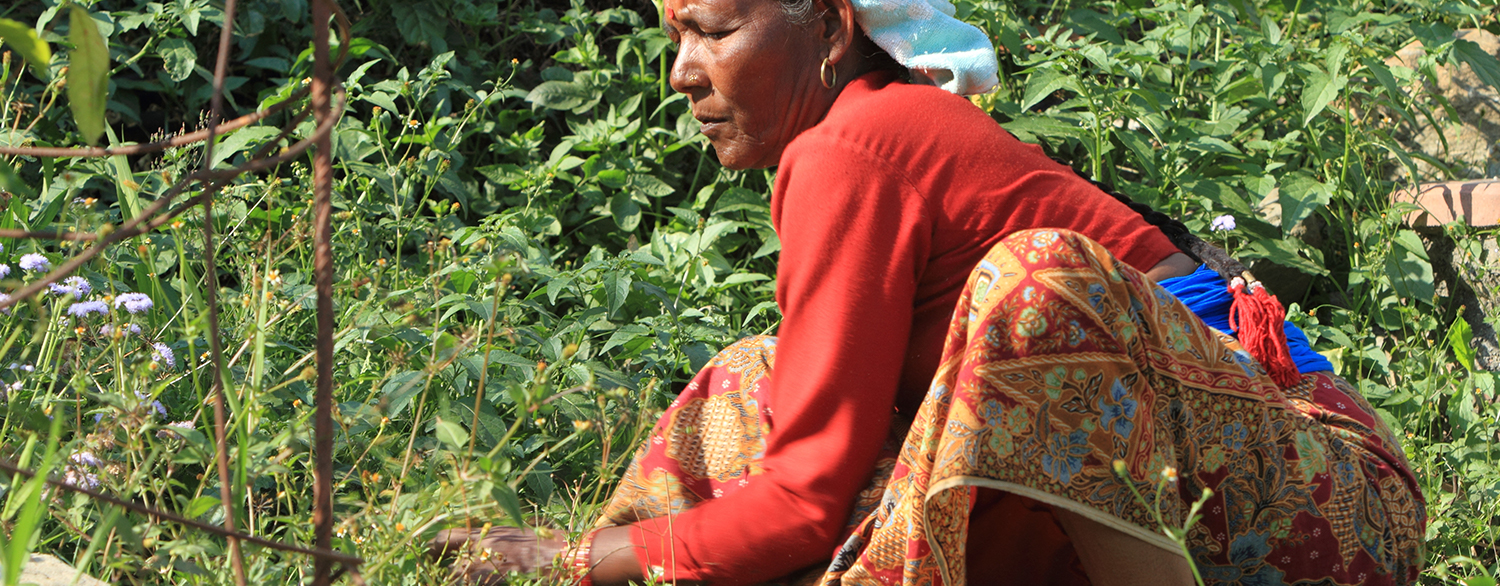Improved eating and living better tomorrow
Gardening, permaculture, eco-farming, urban vegetable gardens, micro-farms... These solutions are now considered true sustainable and ecological agricultural alternatives for achieving food self-sufficiency. Urban or rural gardening is also a way to empower women.
In Paraisópolis, a highly impoverished neighborhood of São Paulo, our program Horta na laje (rooftop vegetable gardens) has provided training and tools for three years so that mothers can grow small organic vegetable gardens together to provide their families with healthy food, while earning an income by cooking a part of the harvest in their public educational restaurant, and by selling the rest.
In its pilot school Happy Chandara near Phnom-Penh, Toutes à l’école educates, feeds and cares for 1,500 girls, aged six years and up, who are among those most in need. As a partner over the past four years, we helped Toutes à l’école create permaculture gardens and a network of eco-responsible family farmers. The goal is to increase fresh produce in school catering on campus. In 2020, our donation helped purchase a plot of land to implement a model farm with eco-responsible activities. There are future plans for the school to host a training center and create a certified organic label.
For the past 5 years, we have supported the urban garden of the Restos du Cœur, near Paris, in which about ten people who are in reintegration from previous precarious situations are trained in gardening and harvesting vegetables. These fresh and organic products are then distributed daily to other people in poverty to contribute to a better diet.
In the far north of India, near Tibet, we contribute to feeding a thousand students, aged 4 to 18, in eight boarding schools. Fresh vegetables are grown year-round, in bioclimatic solar greenhouses at more than 3,500 meters of altitude. We founded this brand-new program of the GoodPlanet Foundation, chaired by Yann Arthus-Bertrand, to support L.E.H.O. and H.O.K.A., two local NGOs. With these organizations, we also shared good practices on food safety, and the conservation and preparation of fresh vegetables, to preserve their nutritional qualities and guarantee students a healthy and balanced diet throughout the year.

